Learn all about the prepositions with pictures included.
Positions.
Have a look at the pictures below to understand how we use prepositions to talk about the positions of things.
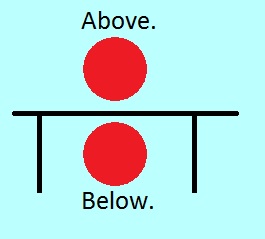
"Beneath" and "Underneath" mean the same as "Below"
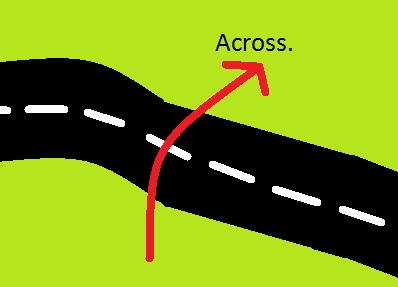
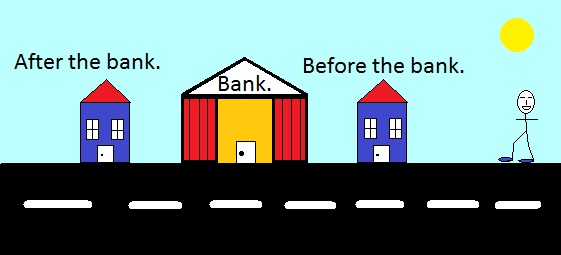
"Beyond" means the same as "After"
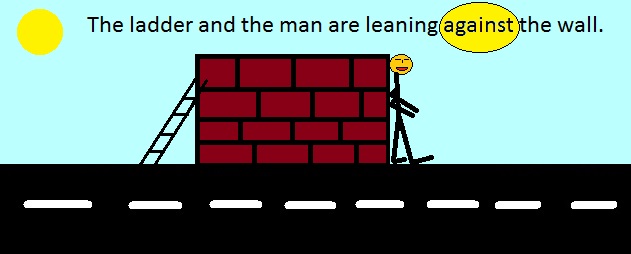
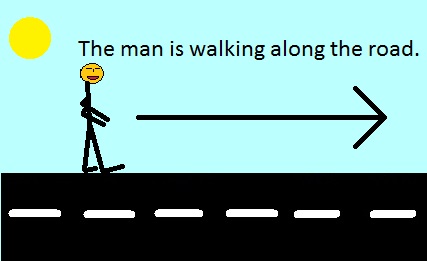
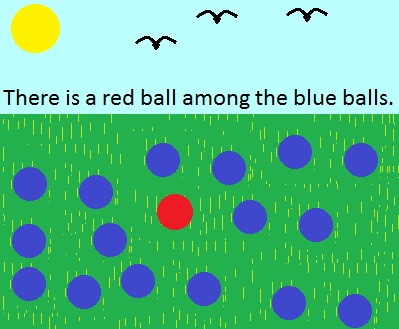
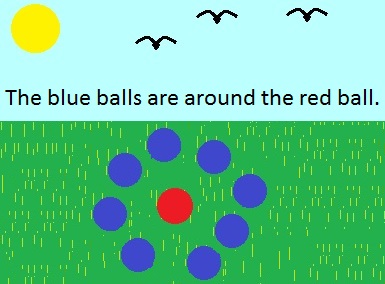
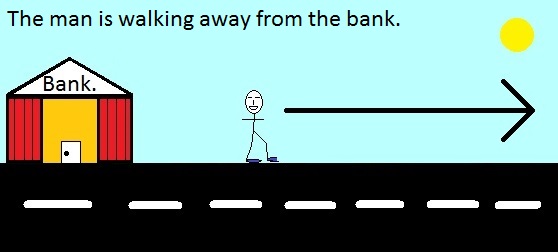
"From" means the same as "Away from"
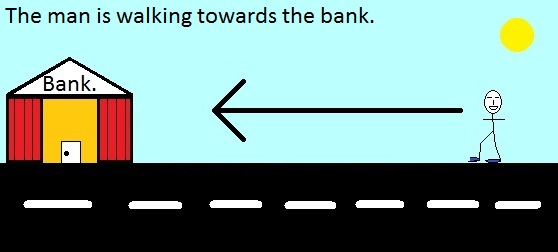

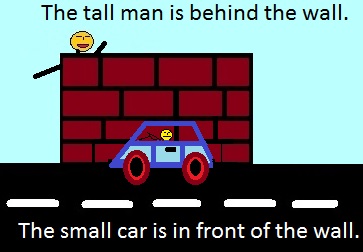
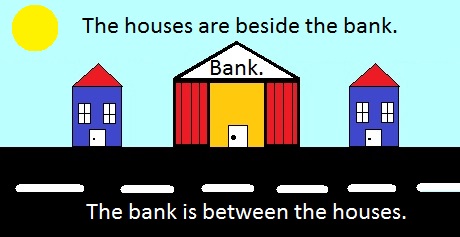
"By" and "Next to" mean the same as "Beside"
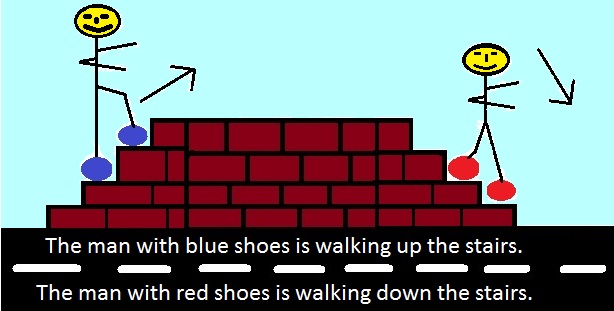

"Inside" means the same as "In".

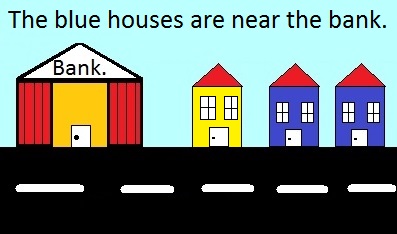

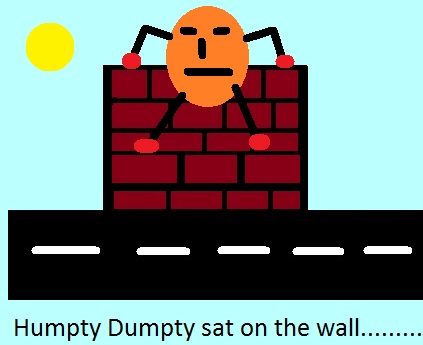
We can use "on" or "on top of" to mean staying still in one place.
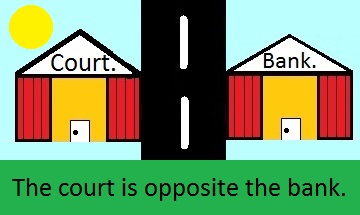

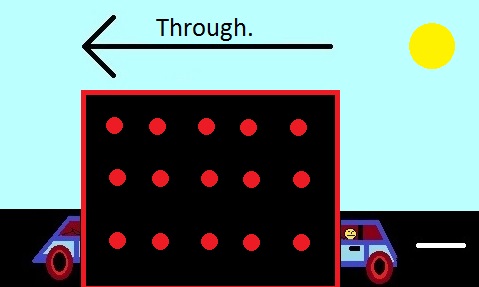
"Through" means to go into one side of something and then out of the other side.
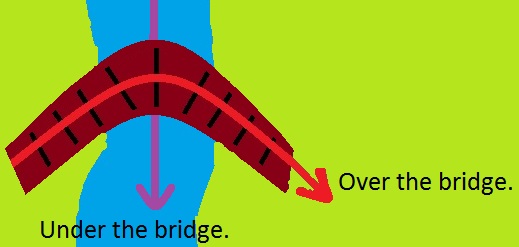
Place.
In.
We use the word "in" to talk about continents, countries, cities, forests and woods, cars, rooms and small places.
E.g. France is in Europe.
E.g. Paris is in France.
E.g. The Eiffel Tower is in Paris.
E.g. There are a lot of trees in the Black Forest.
E.g. I am in the car.
E.g. I am in the van.
E.g. I am in the kitchen.
E.g. Your shoes are in the blue box.
E.g. He is in hospital. = He is hospital because he is ill.
E.g. She is in work. = She has a job.
On.
We use the word "on" to talk about being outside, travelling on water and being in large vehicles.
E.g. They are on the beach.
E.g. The boat is on the river.
E.g. He behaves badly on the football field.
E.g. I am on the aeroplane.
E.g. I am on the train.
E.g. I am on the bus.
E.g. I am on the ship.
E.g. I am on the ferry.
E.g. He is on his way. = He is travelling.
but........
They are standing in a field.
The ship is in the sea.
At.
We use "at" to talk about being in buildings with many rooms and places with many sections.
E.g. I am at the bank.
E.g. I am at the hospital. (probably not ill)
E.g. I am at the park.
E.g. I am at work.
We don't use "the" because we usually have only one job.
E.g. I am at home.
We don't use "the" because we usually have only one home.
E.g. She is at school.
We don't use "the" because usually the child only goes to one school.
E.g. I am at the school.
This suggests that I am a parent.
To.
"To" is explained in the picture above. However there are some differents ways to use "to".
E.g. I am going to work.
E.g. He is going to school.
We don't use "the".
E.g. I am going to the shops.
Sometimes, we don't use a preposition.
E.g. I am here.
E.g. I am not here.
E.g. He is there.
E.g. He is not there.
E.g. She is out.
E.g. She is away.
E.g. I am home. = I have just arrived at home.
E.g. I am going home.
Time.
In.
We use "in" for longer periods of time of a month or more, to talk about the future and to talk about some parts of the day.
E.g. I was born in March.
E.g. June is in summer.
E.g. I was born in 1981.
E.g. I was born in the 1980s.
E.g. I was born in the twentieth century.
E.g. Today is Friday, I will start my new job in three days time. = I will start my new job on Monday.
E.g. I get up at six o'clock in the morning.
E.g. I finish work at three o'clock in the afternoon.
E.g. I have dinner at seven o'clock in the evening.
On.
We usually use "on" to talk about days, but there are some other uses.
E.g. I stop work only on Sundays.
E.g. I saw you on Monday.
E.g. He was born on the fourth of April.
E.g. I will be on holiday next week.
At.
We usually use "at" to talk about times of day.
E.g. I get up at six o'clock in the morning.
E.g. I finish work at three o'clock in the afternoon.
E.g. I have dinner at seven o'clock in the evening.
We can see this in the three examples used for "in".
E.g. A new day starts at midnight.
E.g. The sun is highest at midday.
E.g. I play football at the weekend.
E.g. I can't sleep at night.
Sometimes we say "in the night". This is for something that happens once or at an unknown time at night.
During.
We use "during" for holidays.
E.g. I will be resting a lot during the holidays.
E.g. We will be on holiday during Ramadan.
Over.
We use "over" for holidays, festivals, celebrations and things that last for a few days.
E.g. I will be working over Christmas.
E.g. I will be away over the next four days.
Throughout.
We use "throughout" to mean for all of the time.
E.g. It will be raining throughout January. = It will rain every day in January.
 Follow us on facebook..
Follow us on facebook..
© English Through The Web 2014.
Terms of use






















 Follow us on facebook..
Follow us on facebook..